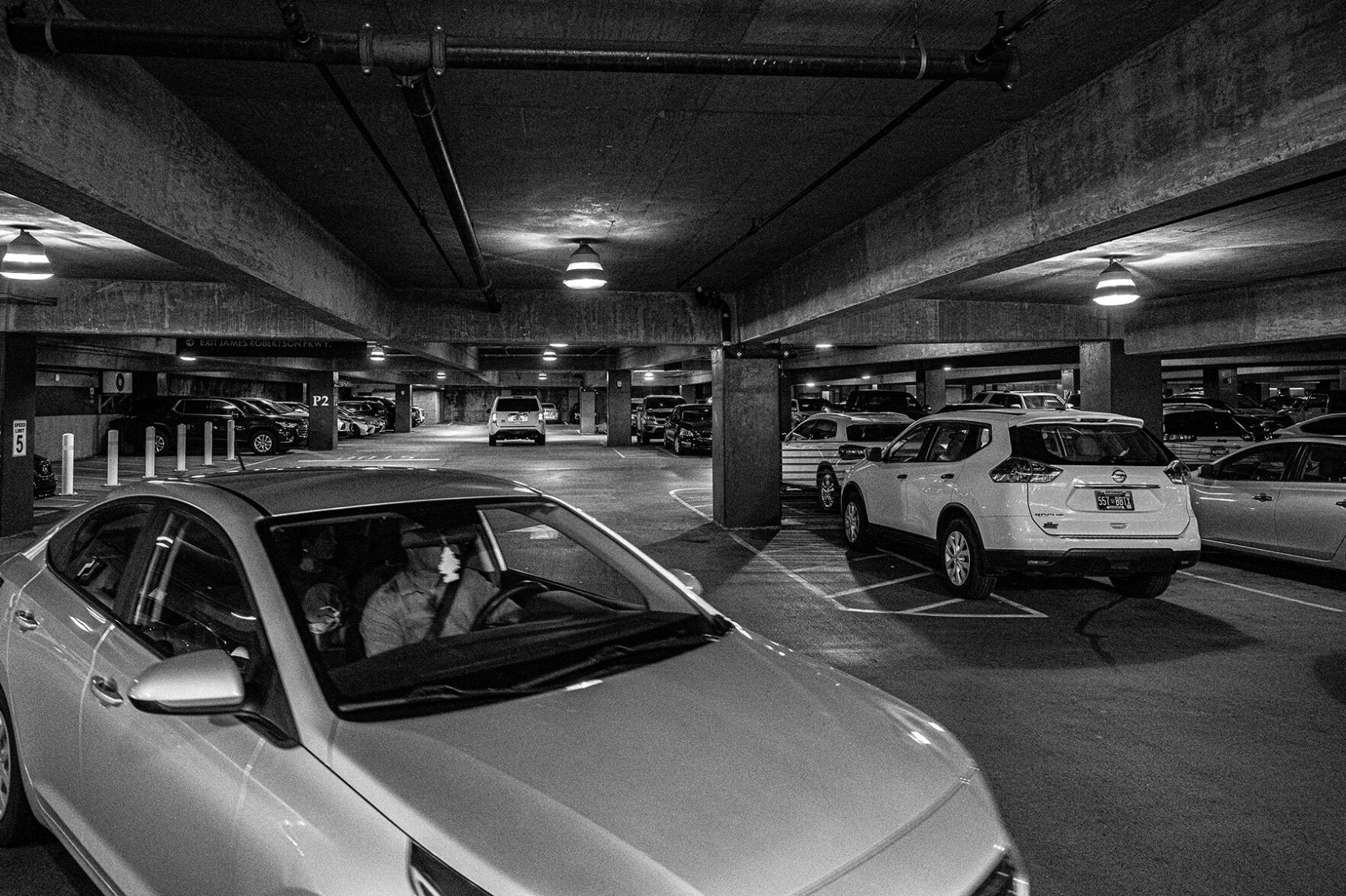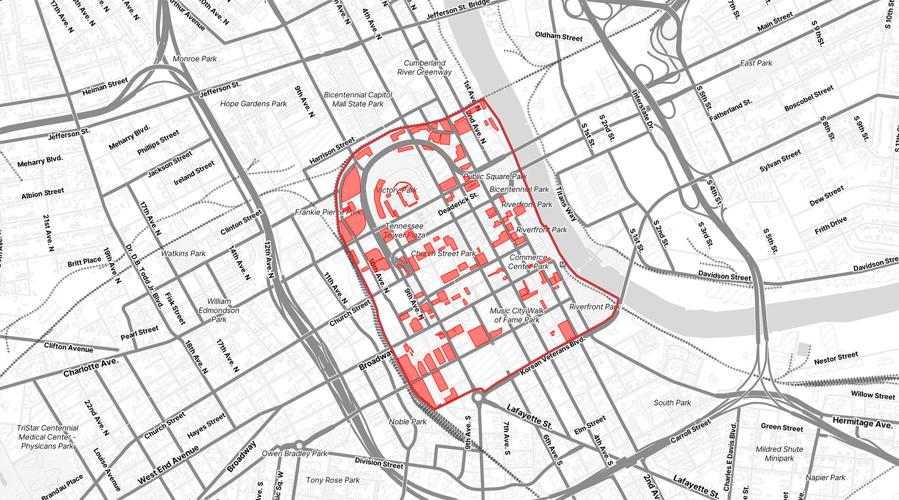Downtown Nashville is one of the most popular tourist areas in the South and home to around 17,000 residents, according to the Nashville Downtown Partnership. In a city encircled by massive interstates where driving is the most common form of transportation by far, visiting the area means you’ll probably need a car to get there and a place to park once you arrive. So how easy is it to find a spot?

The Parking Reform Network found that 19 percent of downtown Nashville is dedicated to parking
The Downtown Partnership, which tracks parking availability in the area between Interstate 40, Interstate 24 and Jefferson Street, says there are 39,128 privately owned spots in surface lots and parking decks, with around 2,000 additional curbside spaces owned by the city. The national nonprofit Parking Reform Network, which analyzed a slightly smaller area and did not include curbside parking, estimates that 19 percent of land in downtown Nashville is dedicated solely to parking — slightly below the average for metro areas surveyed.
But that doesn’t mean parking downtown is always easy — or affordable. A quick Google search will yield dozens of parking horror stories: A WKRN story last month highlighted one driver who paid $57 to park at a Metropolis parking lot downtown for less than an hour. According to the report, as of early September there had already been 66 complaints to the Division of Consumer Affairs within the Tennessee Attorney General’s Office this year. Expensive parking can hit downtown musicians particularly hard; as the Scene reported in January, many performers don’t receive complimentary parking at the venues they’re performing at and rely on paid lots.
“It adds up, and depending on where you are, the money’s not great playing down there,” musician Josh Hedley said at the time.
The Downtown Partnership reported in 2022 that parking rates rise at around 5 percent each year. One factor that allows prices to fluctuate: The overwhelming majority of Nashville’s parking is privately owned. Unlike city-owned lots, which have rates set by the public Traffic and Parking Commission, private lots can set rates however they want and change those rates without notice. Metropolis Technologies — a Santa Monica, Calif., company that acquired Nashville-based Premier Parking in 2022 — admits as much on its website, encouraging drivers to consult the website, not posted signs at lots, for accurate rates.

Metro Courthouse Parking garage
The Downtown Partnership provides lot information but notably does not post prices for private lots on its website, and a spokesperson directs drivers to Metro-owned lots if they’re headed downtown. (On a Wednesday evening during the course of reporting this story, the website SpotHero.com — one of several that tracks parking availability in Nashville — showed that an overnight spot at the city’s Library Garage would cost $10, while private lots just two streets over ranged from $15 to $40 for the same period.)
The Parking Reform Network’s Thomas Carpenito, who created the group’s Parking Lot Map, says high prices aren’t entirely a bad thing. If parking is priced too low, more drivers are incentivized to stay in spots longer, reducing the availability of spots for drivers arriving downtown.
“You should price it at a rate such that you keep 80 percent occupancy,” says Carpenito. “If you price it at the correct point, you’re paying for the service you’re taking.”
There are few if any examples of American city governments regulating rates in privately owned parking lots. Tennessee has state laws against price gouging, but they apply to a limited number of food, medical and emergency goods during “abnormal economic disruption” and certainly don’t include parking. The primary regulation American cities have implemented when it comes to parking in urban areas has been to set mandatory parking minimums based on a building’s square footage, occupancy and so on.
Nashville eliminated mandatory downtown parking minimums more than a decade ago, and expanded that ordinance to apply to the city’s entire Urban Zoning Overlay last year. Supporters of the move see it as a boon for residents and visitors. Easy downtown parking, they say, shouldn’t be the top priority for cities.
“Instead of focusing on squeezing in mandated parking spaces, small business owners now can focus on creating places that people want to visit and enjoy,” then-Metro Councilmember Colby Sledge told the nonprofit Strong Towns in February.
It’s an approach many metropolitan areas are taking to increase downtown access. Rather than regulating the supply of parking, they’re decreasing the demand by bolstering access to public transit like buses and bike lanes. And there’s momentum in Nashville: Mayor Freddie O’Connell is a former chair of the Metro Nashville Transit Authority and resisted owning a car for several years. He won this year’s mayoral election by a wide margin and has pledged to improve public transit access across the city during his term.
“I’m definitely encouraged,” says Walk Bike Nashville president Daniel McDonell. “In many ways, I promote this stuff because it’s the right thing to do — it helps with the environment and sustainability — but also, it’s an inevitable result based on the market.”
Correction: A previous version of this story provided an inaccurate population figure for downtown Nashville. The most recent population estimate from the Nashville Downtown Partnership is 17,000 residents, not 14,000.





